On Friday, October 1st, 2021, and within “Beirut Blast: The Untold Stories of Women and Girls and their Role in Recovery,” Fe-Male, in partnership with Women’s Peace and Humanitarian Fund and UN Women, organized a consultation meeting in the Beity Association office in Gemmayze.
Through the project mentioned above, Fe-Male aims to expand its efforts to document women and girls’ contributions to peacebuilding and recovery efforts and mobilize and advocate for women’s inclusion in decision-making processes and national recovery plans. Ever since the Beirut blast, Fe-Male has worked with women and girls to amplify their voices and ensure their protection and well-being. Thus, after mapping the main actors working with women & girls and on gender issues responding to Beirut Blast, several organizations actively working on the ground were invited to the consultation meetings to discuss the gendered impact and response to Beirut Blast. Among the organizations present were Abaad, EFI, SEEDS, Beity Association, Madaniyat, Haven for Artists, Fifty Fifty, Stand for Women, Plan International, AIW, IRC, CARE, Dar Al Amal, Intersos, UN Women, Barrad Al Hay, and Caritas.
The discussion generated different thoughts and conclusions, emphasizing that, to a certain extent, the response to Beirut blast was not gender-sensitive to the needed extent. Despite all efforts of organizations, focusing on gender sensitivity faded with time.
Moreover, local needs did not equate to donors’ priorities. The aid was primarily focused on specific areas; the criteria of selecting beneficiaries were, on many occasions, neither efficient nor inclusive. Also, accessibility was not always ensured for the most marginalized.
As a next step, Fe-Male recognizes the importance of using gender audit as a framework to view media content. A Gender-media audit necessitates media coverage to be more inclusive in a way to promote gender equality. In coordination with the other organization, Fe-Male aims to highlight initiatives that had a gendered approach and shed light on the struggles and roles of frontliners and some of the challenges they endured. The audit will also be assessing the effect of the blast on women, girls, the LGBTQI+ community, and other marginalized communities. Fe-Male will utilize its digital media capacities and reach to amplify the voices of women and girls affected and also respond to the blast and document and disseminate resources, data, and stories.
In conclusion, through its “Beirut Blast: The Untold Stories of Women and Girls and their Role in Recovery,” Fe-Male is working on empowering women and girls by narrating their stories and encouraging their participation in decision-making processes and national recovery plans. In the upcoming stages, it is crucial to collect information and use a gender-sensitive lens to evaluate the extent of the gendered impact and response of the Beirut blast.


